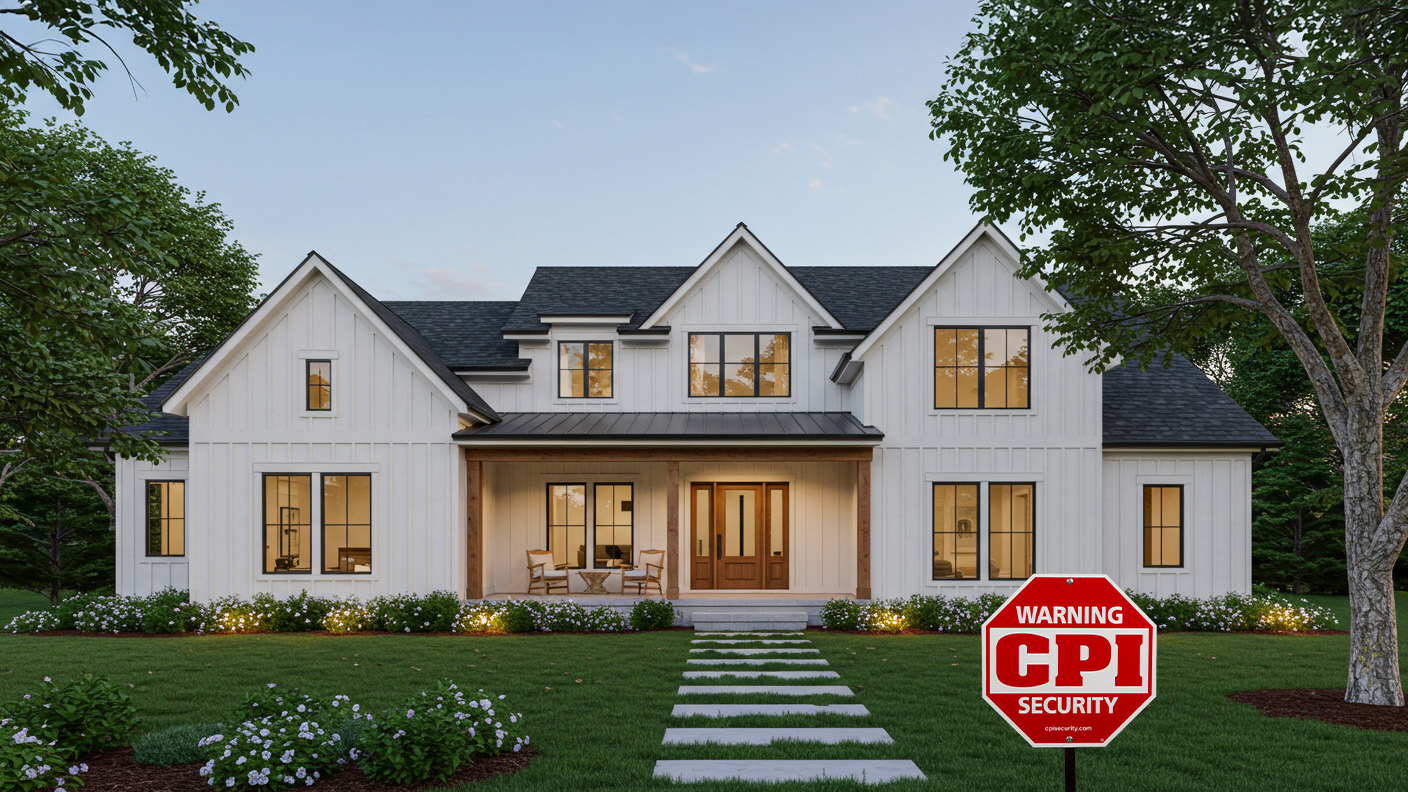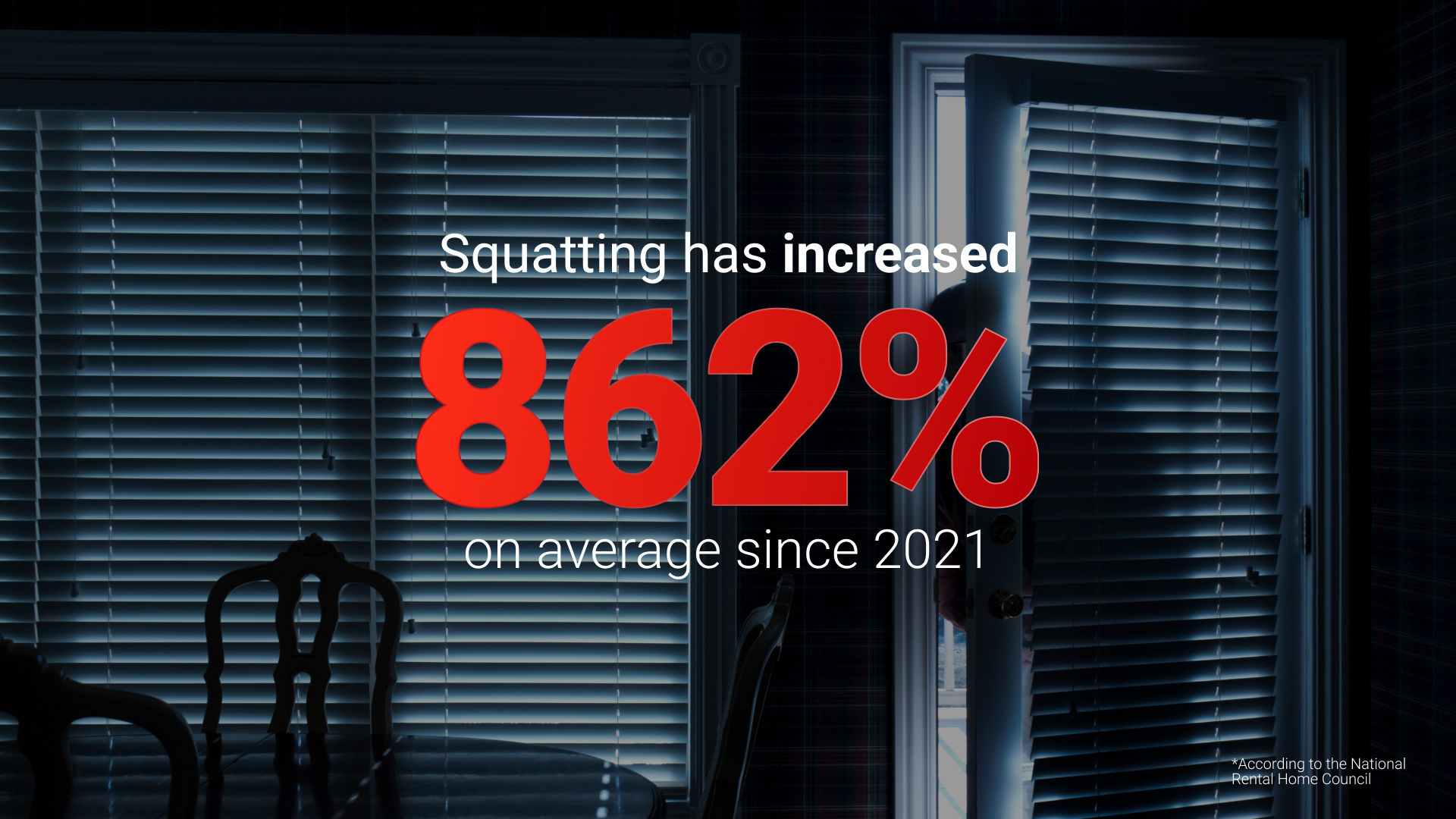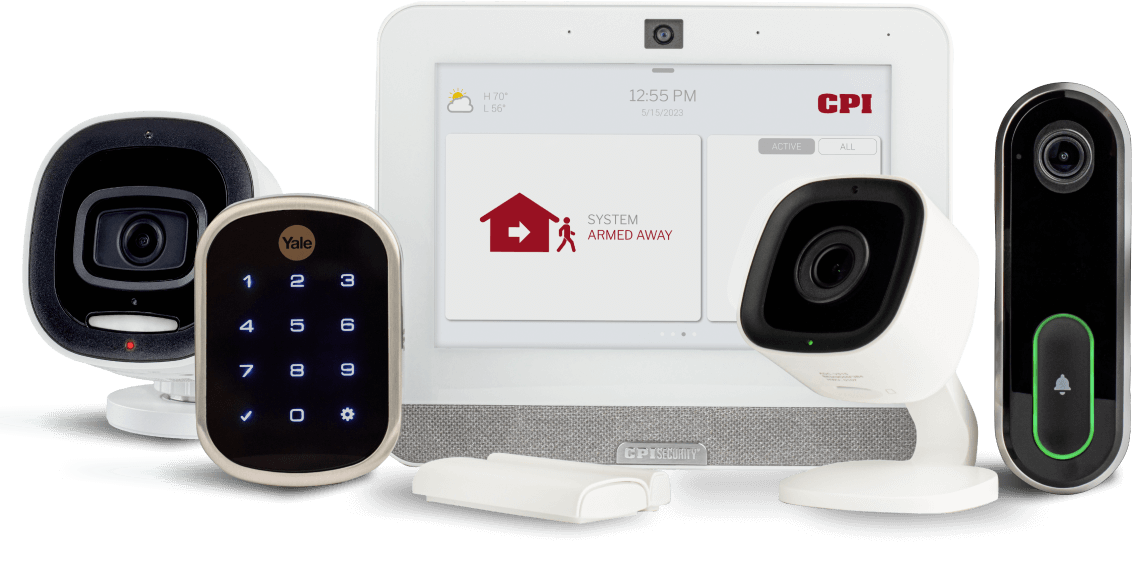Knowing how home security systems work can be crucial for deciding on the home security system and components for your home. There are many types of home security systems, so understanding their differences can help you discover what will work best for your unique circumstances.
In this guide, we’ll answer key questions to help you make the right decision for you, your family, and your home.
What you’ll learn:
- What is a Home Security System?
- Types of Home Security System
- How Do Security Systems Work?
- Home Security System Features
- Security System Components
- The Alarm System is the Centerpiece
- What is an Alarm System?
- How Does an Alarm System Work?
- What is a Good Home Security System for You?
- FAQs
What is a Home Security System?
A home security system is a network of connected cameras, alarms, and sensors that work together to protect you, your family, and your home. A security system itself often describes the security hardware on your property—smart door locks, cameras, lighting, and sensors, etc. These devices work to let you know when there’s an issue at your property and can help alert you to, and prevent, problems, including:
- Break-ins
- Fires
- Flood
- Temperature changes.
Types of Home Security System
There are two main types of home security systems to opt for, depending on your needs and preferences. You could invest in a professionally installed system, or you could choose to buy individual security devices and install them yourself.
Custom System, Professionally Installed
An expertly installed smart home security system is what CPI Security always recommends. With this option you can customize your home security package with several security system components. These components include:
Further options can also be added during customization, including:
When you interconnect these systems, it’s referred to as a smart home security system, as the equipment can be brought together via a centralized hub, like a control panel or app. Professional installers set up and supervise everything within your system from a monitoring station linked directly to first responders for faster response.
Off-the-shelf System, DIY Installed
Another option is a security system bought from a store or website and installed yourself. These systems might simply be an individual device or a package of devices you purchase in-store or online. Rather than a professional monitoring service, with this option, the monitoring, updating, and upgrading responsibilities fall to you.
How Do Security Systems Work?
Security systems differ between types, so no two will work in the same way—especially if you choose to customize your system. However, a connected security system links devices such as sensors, alarms, and cameras over a radio frequency or Wi-Fi.
These devices are combined via a central hub like a smartphone app or control panel, where all the security systems components or devices can be viewed or controlled. So, while you’re at work or on vacation, you can double-check your smart door lock is activated, turn your central heating up, and check your cameras via the app.
Most professional systems are connected to staffed monitoring centers, where if an alarm is triggered, operators can use alarms to deter potential intruders and alert police and other first responders when it’s required.
Home Security System Features
Security system features will vary according to the company and brand. They’ll also differ if you choose a customized system tailored to suit you, your home, and your lifestyle.
However, the most common smart home security system features include:
Monitoring windows and doors
There are several ways to add monitoring access using your windows and doors with a home security system. You might add a video doorbell to see who’s on your porch or select window sensors for comprehensive security.
Video surveillance of property exterior
Outdoor cameras can reassure you that your property is protected, whether at home or out and about. You could also add a floodlight camera for additional peace of mind.
Fire detection and gas leak detection
Safety devices, including smoke and carbon monoxide detectors, can also be added to your smart home security system. These allow you to detect and act on alerts quickly, potentially preventing fires and potential life-threatening situations.
Centralized control via smartphone app
A smart home security system comes with a smartphone app dedicated to monitoring and controlling all your chosen components.
Option to add smart home automation
With smart home automation, you can connect and control everything from your light switches to your thermostat to door locks and cameras via a hub and smartphone app.
The Main Security System Components
Security system components can vary depending on your type of system. However, generally, a professionally installed smart home security system will include:
Home security sensors
Whether at work, away from home, or sleeping, motion detectors and window and door sensors can offer you peace of mind. In collaboration with a smartphone app, you will receive an alert whenever your sensors and detectors sense movement or lose contact with the base.
Home security cameras
You can customize your camera options depending on your lifestyle and your property. For example, indoor cameras often have smart features and two-way audio, meanwhile outdoor camera options include floodlights, alarms and audio to deter potential criminals.
Fire and life safety alarms
In critical emergencies, fire and safety alarms can be invaluable. Some of your options include:
- Smoke detectors
- Carbon monoxide detectors
- Water sensors
- Heat detectors
- Medical pendants.
When any of the above triggers an alarm, the system or two-way speakers from a monitoring center will activate.
Control panel or hub
Connected technology works to combine all your security system components in one place—typically via a control panel or a hub. An expert technician will install these in your home to ensure your smart home security system works exactly as it should.
Smartphone app
Once your security system is installed and connected via a control panel or hub, you will need to install an app on your phone to monitor and control everything. This way, wherever you are, you can control and monitor your security system remotely.
Should you choose a DIY solution and opt to install a security system yourself, you may not have the option to include all the above comprehensive features.
The Alarm System is the Centerpiece
An alarm system is the center of your professionally installed smart home security system—covering all areas.
What is an Alarm System?
A home security system connects alarms to detect disturbances, such as burglaries and break-ins, as well as incidents such as fires, gas leaks, and medical emergencies. An alarm system links to all the main security system components—sensors, cameras, smoke alarms, etc.
How do Alarm Systems Work?
When your security cameras or motion sensors are triggered, they send an alert to the alarm monitoring center. From here, professionally trained monitoring staff evaluate whether they need to alert first responders. This system works the same way when a smoke or carbon monoxide alarm is triggered.
“Our simple install process has been honed over many years. One of our technicians will install your system, explaining where things go and what they’re going to do. Then, they’ll check to make sure you understand how everything works. because if you don’t understand it, you’re not going to use it. And if you’re not going to use it, there’s no point in having it.”
Dan Hochstaetter, CPI Security Head of Digital Experience
Learn more about professional installation
How is Your System Monitored?
Professionally Installed System
Companies, such as CPI Security, offer professional 24/7 monitoring from a dedicated monitoring center, where trained experts are on hand to assess the situation when your alarm is triggered. If necessary, they can then escalate the situation to first responders. With CPI Security, you have the constant reassurance of professional monitoring, while also having the ability to monitor things remotely yourself via a smartphone app.
DIY, off-the-shelf System
The typical process with a DIY security system is self-monitoring via alerts to your smartphone. However, some systems offer professional monitoring for an additional charge.
With a professional system such as CPI Security, your monitoring comes as part of your whole solution:
“A lot of security companies utilize contractors or vendors for their monitoring center. We own that process, with a dedicated on-site monitoring center,” says Dan at CPI.
CTA: Learn more about alarm monitoring
What is a Good Home Security System for You?
Different types of home security systems will be suited for different people—the important thing is to do your research before you make your choice. Whether you opt for a DIY system to install for yourself or a professionally installed solution, you can be better informed to choose the right option for you.
“CPI Security is a custom solution for you, whatever your needs. If you love smart home tech, we have something for you. If you’re camera-oriented, we have something for you. The same if you’re focused on fire protection above all. We’re not a cookie cutter: you can go to a high street or online store and buy a security system in a box and mount it yourself. We’re nothing close to that.”
Dan Hochstaetter, CPI Security Head of Digital Experience
Call us on [INSERT DYNAMIC NUMBER] to discuss your options.
FAQs
What is smart home security?
Smart home security allows you to control your security system components remotely via your smartphone or tablet, using an app. For example, you can add security components such as alarms, cameras and sensors, and keep an eye on everything from your phone. Plus, you can add things like a thermostat, front door lock and garage door control for extra peace of mind.
Do alarm systems work?
Yes, alarm systems work well, especially when you opt for a professionally installed system with built-in monitoring via a control center. You’ll be able to monitor and control your alarms as part of your overall security system via your app, but you’ll also have the reassurance of professional 24/7 monitoring, too.
Where does CPI Security install home security systems?
At CPI Security we are proud to work across the Southeast. Whether you’re in Charlotte, Raleigh, Charleston, Atlanta or Knoxville, we’ve got you covered. Our professionally trained experts will come to your property and install your custom home security system at a time and date that works for you. What’s more, we won’t leave until you’re happy. Other main areas include Greensboro, Asheville, Myrtle Beach, Knoxville and more.
What is a local alarm system?
A local alarm system triggers a visual or audible alarm within your property to alert the home or business owner of an emergency. This alarm system isn’t linked to a professionally manned central monitoring station. Instead, a local alarm depends on someone inside, or in the vicinity of, the property hearing and reacting to it.
In what way can a home security system be beneficial?
A home security system can be beneficial in many ways, including protecting, preventing, deterring, and responding to various incidents, threats, and emergencies. A system can do many things, such as trigger alarms to deter potential intruders, alert local emergency services to a fire, and even allow you to check you’ve locked your door when you’re away from home.




